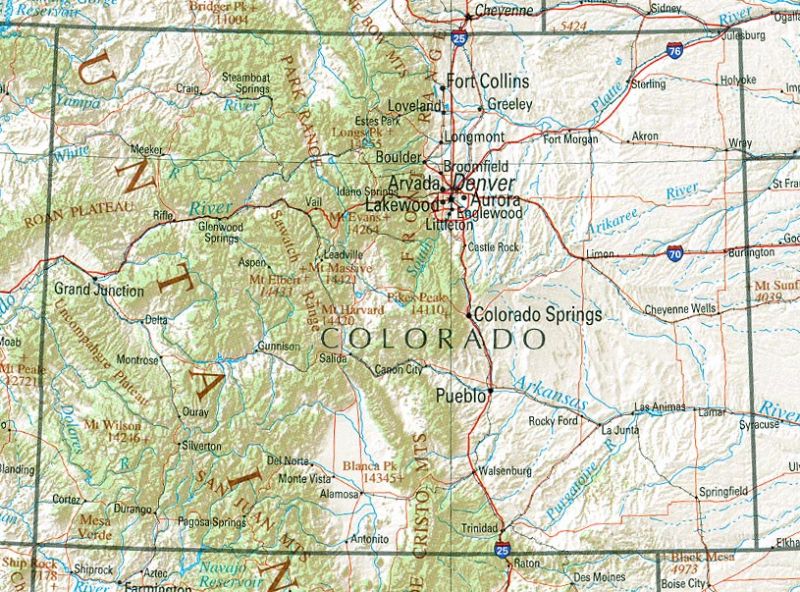 With Colorado hoping to harvest revenue from taxes and licensing fees on newly legal cannabis, the herbal enthusiasts who fought for Amendment 64 may find their fantasies of free—or at least cheap—weed dashed by the state's new marijuana order. National Public Radio on Nov. 13 features an interview with reporter Tony Dokoupil, author of a Newsweek cover story, "The New Pot Barons." He notes the restrictive system already in place for medical marijuana in the Centennial State, and warns:
With Colorado hoping to harvest revenue from taxes and licensing fees on newly legal cannabis, the herbal enthusiasts who fought for Amendment 64 may find their fantasies of free—or at least cheap—weed dashed by the state's new marijuana order. National Public Radio on Nov. 13 features an interview with reporter Tony Dokoupil, author of a Newsweek cover story, "The New Pot Barons." He notes the restrictive system already in place for medical marijuana in the Centennial State, and warns:
So if you want to grow or sell medical marijuana in Colorado, you need a license. And the licensing process is this really stringent process that includes [a] background check...and it's very pricey. So if you're, like, just a hippie spiritualist, unfortunately—and this is controversial—you may struggle to survive, to have the capital to survive in the current medical marijuana business in Colorado...
[H]ere are people who believe that marijuana is God's plant and the government doesn't have any business regulating it. People have no business selling it, making a profit off of it, that this is medicine and it's obscene to try to profit off of it. I mean, that is a significant subculture within the marijuana—the wider marijuana culture.
Dokoupil also notes reservations about the new measure by Colorado's own attorney general, John Suthers. Reuters informs us that Suthers says he will implement the voter-approved constitutional amendment, although he personally opposed it. But he is balking about imposing the tax, which was a key point in selling the measure to the state's voters and power-brokers. "In fact, Amendment 64 did not comply with required language under the Taxpayers Bill of Rights and no such tax will be imposed," Suthers said in a statement after the vote, citing a 1992 law that bars state officials from raising taxes without a vote of the people.
The Amendment 64 website states:
The initiative creates legal marijuana establishments—retail stores, cultivation facilities, product manufacturing facilities, and testing facilities—and directs the Department of Revenue to regulate a system of cultivation, production (including infused products), and distribution. Under the provisions of the measure, the Department will license marijuana establishments at the state level, and should it fail to act, localities will be permitted to issue such licenses. Localities will have the right to ban marijuana establishments through either their elected representative bodies, or through referred or citizen-initiated ballot measures.
Following the victory of legalization measures in both Colorado and Washington, Dokoupil explicitly invokes the possibility of corporate cannabis (the specter of which may have helped defeat Prop 19 in California two years ago):
We've seen legalization in two states—that's the first step toward legalization in other states. That's a step toward legalization nationally. So you have a third vice industry like tobacco and like alcohol. The problem with that is that 80% of the profits tobacco companies and alcohol companies make comes from heavy users. The business model is based on people consuming more than they should. And so there's a strong economic incentive for big marijuana companies to create as much addiction as possible. And yeah, sure, marijuana is less harmful than Jack Daniels, but it's not the same thing as safe or helpful in the home or helpful in the workplace, or good.
And so the long-term worry is that you have sophisticated marketing programs in place, distribution programs in place, that create a double or tripling of the current level of marijuana usage. And...by the way, Americans [already] use marijuana at triple the global average. So we're talking about a tripling of a tripling, and that's a big deal. It's something to think about, which is why many people are in favor of—or I believe will become more in favor of as they realize the risks—of severe limitations on the size of marijuana businesses and the advertising that they can undertake.
Read and weep: If Dokoupil is right, the legalizaiton measures could really live up to the conservative propaganda that such proposals would encourage marijuana use. Cannabis' illegality protects a degree of community control (as well as protecting a greater degree of mafia control), a harsh reality for normalization advocates. Are the "hippie spiritualists" screwed either way?
Image from the Perry-Castañeda Library Map Collection







Recent comments
2 weeks 3 days ago
2 weeks 3 days ago
5 weeks 4 days ago
6 weeks 3 days ago
10 weeks 3 days ago
14 weeks 2 days ago
18 weeks 2 days ago
19 weeks 14 hours ago
29 weeks 14 hours ago
33 weeks 1 day ago